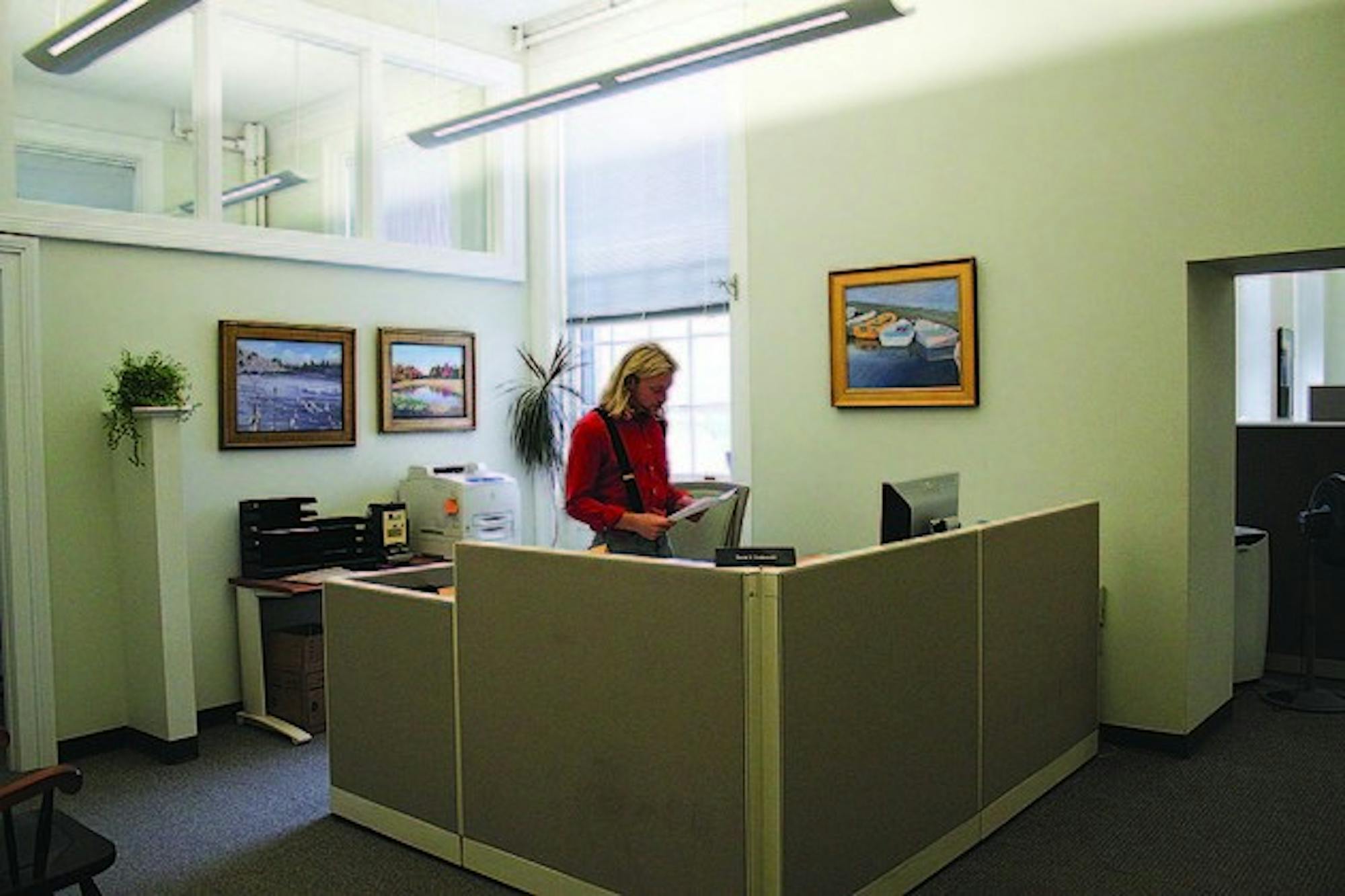The Registrar is debuting eight new projects this year, with the goal of updating the College's online systems and gaining recognition for its technology in the field of higher education, Braz said. The initiative is also connected to a larger sustainability effort to reduce paper use across the College.
"I came here six years ago and there was a need to bring a lot of systems up to speed," Braz said. "One of the things I think people might not realize is how technical the Registrar's Office is."
Prior technology initiatives gave students the ability to access enrollment verification, change their Dartmouth Plan, complete a degree audit via DegreeWorks and update addresses online. The Registrar also implemented a new website this year, now the only means of accessing the Organizations, Regulations and Courses manual, which is no longer distributed in print.
"Anytime we can streamline a paper process and put it online, that's something we try to do," Associate Registrar for Technology Kristin McAdams said.
The newest initiative will be an online major declaration system available on BannerStudent to members of the Class of 2015 beginning Winter term, according to McAdams, who served as the project's leader. The system will replace the previous process of having to file three paper cards in order to declare or change a major, with one card each for the department, the Registrar and the student.
"It's good to have anything that's easier, that you can do with a laptop you already have, instead of walking to three different offices," Callista Womick '13 said. "Environmentally speaking, that's a pretty huge impact."
Despite the elimination of paper forms, students will still need to meet with a major advisor and obtain approval for any changes to a major. However, students will not need to meet with an advisor to obtain a signature on paper, a change which may reduce personal interaction, according to Womick.
"I think if this leads down the path of adding and dropping courses late in the term online, that would be bad," she said. "I think it's important to do some things in person."
Faculty members have reacted positively and are looking forward to a simpler process, McAdams said.
The new process will promote an emphasis on meaningful interactions such as discussions on coursework, job opportunities and research rather than a rush to obtain signatures on paper forms, according to economics department vice chair and professor Bruce Sacerdote.
"It is definitely a win-win," Sacerdote said in an email to The Dartmouth. "In our department, the actual major-signing is not a terribly informative exercise, but it consumes a lot of time and emails as students try to set up an appointment or find a faculty member hours before the deadline."
The Registrar will soon debut an online course approval system that will allow the parties involved including professors, department chairs and the Committee on Instruction to fulfill their roles virtually, according to Braz.
The project is part of an ongoing initiative to increase the availability of online systems for professors, such as the ability to check for prerequisites and submit grades online.
"It will lower the administrative burden for the relevant committee and will further unleash the creative powers of the faculty to design new and exciting courses," Sacerdote said.
While the online course approval system suggested by Braz in 2006 as a quicker way for professors to suggest new course ideas was previously delayed to prioritize the online major declaration project, it is finally nearing completion, Braz said.
By the end of the year, students and alumni will also be able to request and receive digital transcripts in a secure PDF format. Firms and students have shown interest in electronic transcript delivery, and some other schools have already established a digitized system, Braz said.
Galen Pospisil '13 said his friends at other institutions have used similar systems for "the past five years or so."
The role of the Registrar will become one focused on guidance once most transactions can be completed online, Braz said. While the Registrar continues to have office hours used largely by freshmen seeking instruction and advice prior years saw high levels of traffic at the beginning of every term, with students seeking to complete everything from course election to D-Plan changes.
"We'd go out and buy them donuts," Braz said. "Now, at the beginning of the term there may be four or five students waiting for us to open, then they're out the door in five minutes. So much of what you can do, you can do online."




